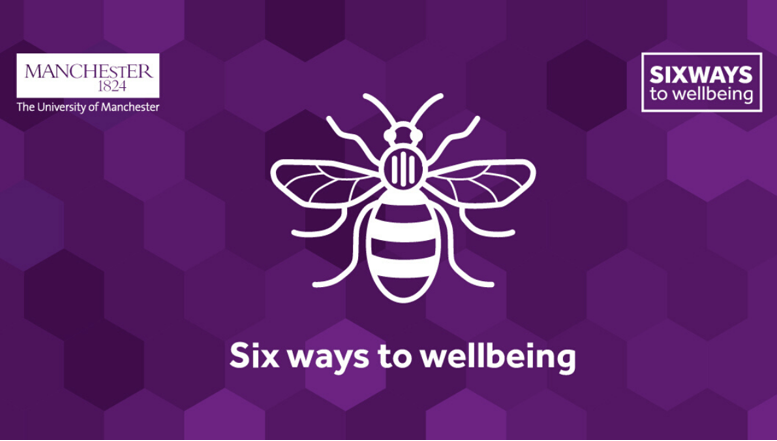
Six Ways to Wellbeing: Coping with Self-Isolation (Part 3)
In the final post of our three part series on applying the Six Ways to Wellbeing to self-isolation and social distancing, we look at taking notice of the world around us and the benefits of giving.
You can see our previous blogs on the importance of connecting with others and the joy of learning and discovering here and on being active and healthy here.

Be aware of the world around you.
Be mindful of the moment you are in. Understanding what’s happening and noticing how it makes you think and feel can help you to understand yourself better.
Take care with news and information
Taking notice of current affairs at the moment could easily lead to feelings of anxiousness and upset. Therefore, be careful when choosing your sources of news and health information. The NHS coronavirus webpage and gov.uk coronavirus webpages will give you important information, free of rumour and conjecture, backed up by the expertise of Public Health England.
Social media can help you stay in touch with people but might also be overwhelming if your news feed is a constant stream of coronavirus news stories or posting about peoples’ anxieties. It is also difficult to identify accurate sources of information on social media. Therefore, if you feeling drained by social media, consider taking a break or limiting your use. You might decide to view particular groups or pages but not scroll through timelines or newsfeeds. You can also mute words, phrases or individuals on Twitter and Facebook and unfollow anxiety-inducing accounts on Instagram to give yourself a break from coronavirus chatter. Finally, to keep yourself connected, why not search for social media accounts that gather positive news stories to give yourself a boost?
Find ways to relax and be creative
Mind, the mental health charity, recommends lots of different ways for you to relax, take notice of the present moment and to take the opportunity to unleash your creativity. These include:
- arts and crafts, such as drawing, painting, collage, sewing, craft kits or upcycling
- DIY
- colouring
- playing musical instruments, singing or listening to music
- writing
- yoga
- meditation
Be mindful
Mindfulness meditation is an effective evidence-based approach to managing stress and improving your concentration. People who practice mindfulness regularly report feeling calmer and more focused. The practice trains the mind in awareness in order to undo our habitual responses to everyday troubles. See the University’s ‘Build your mental health expertise’ page for links to a range of mindfulness resources to help you get started.

Do something for a friend, colleague or stranger.
Helping, giving, sharing – doing something for someone else has been proven to make us feel more positive and increase our self-worth. But how can we give to others in a time when we are being asked to distance ourselves more?
Volunteer
Mental Health charity SANE advocates volunteering as it provides ‘structure, direction, meaningful activity, a sense of purpose and achievement, interest and improved confidence and self-esteem’.
The University’s Volunteer & Community Engagement team have tips on how you can offer your support at the moment, such as joining a phone call buddy scheme or volunteering online.
Give someone a call
Think about the people you know, either in your local community or amongst your peers at University. Is there anyone on their own or who might be struggling? Give them a call to check in on them – it might make a huge difference to someone feeling isolated and lonely.
Give to Food banks
With many people at the risk of redundancy or not being able to work due to coronavirus, Emma Revie, chief executive of the Trussell Trust, the UK’s largest network of food banks is “anticipating a significant increase in users as more people are unable to work.”
Many supermarkets have a collection point for local food banks so, if you can spare any items and can visit the supermarket safely, why not donate while doing your larger household shop? Before donating, you can find out which items your local food bank particularly needs here.
We hope that you have found this series of blogs useful. Please feel free to share with us any positive stories or tips on wellbeing in the comments section below, by emailing us at uomsalcstudents@manchester.ac.uk, or via Facebook, Twitter or Instagram.

0 Comments